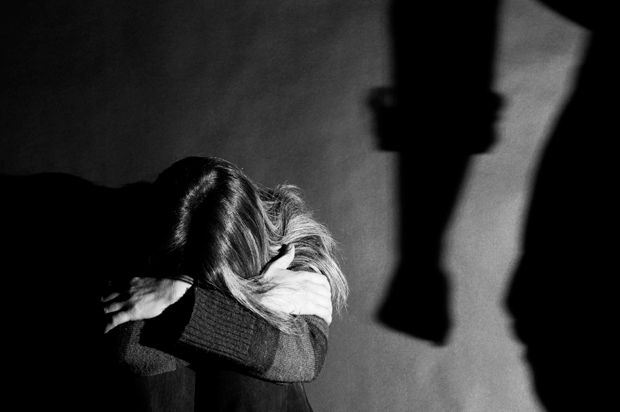Such a hoo-ha about The Archers this week as Helen faces trial by jury — and, much worse, has to confront her horrid husband Rob face-to-face for the first time since she tried to stab him with a knife in the kitchen of Blossom Hill Cottage. Whatever the decision of the court (and of Sean O’Connor, the horrid editor who is supposed to have left his job at the Radio 4 soap but who in a recent interview threatened us with a worst-case scenario that would free Helen but hand custody of the children over to Rob), it’s curtains for life in Ambridge as we know it. The soap has been well and truly done over, every halfway believable character cast off, every spot of light relief (Jazzer, Lilian, Lynda) subsumed into the desperate desire to crank up the ratings (that desperation proved by the decision to start the trial on Sunday night, hooking listeners in before the week begins). Even the farmers have gone awol, Helen’s brother Tom, formerly a pigs-and-sausage man, contemplating a future as an organic babyfood retailer.
The twice-daily series now bills itself as ‘contemporary drama in a rural setting’, but Ambridge is as far from either ‘contemporary’ or ‘rural’ as the moon. Name a multiracial character, a disabled or in other ways afflicted character, a Pole or Albanian, a family on benefit. We’ve had all these, but mysteriously they’ve disappeared, as if reality has no place in Borsetshire, which of course it never did have (in spite of all those references to bovine flu, badger culls and the price of a pint in the Bull). Until, that is, Rob Titchener came on the scene, or rather Mr O’Connor.
The domestic-abuse storyline was gripping to begin with, and a worthy attempt to make Ambridge relevant, but of course in reality abuse is too raw, too monotonously awful, too dull for O’Connor and his team, who have turned the storyline into cheap melodrama, one terrible event being pursued by another like the hounds of hell. Not content with that violent night at Blossom Hill Cottage, we’ve had to listen to Helen screaming as she discovered her cell-friend Kaz in pools of blood, while her brief, Anna, supposedly a highly professional barrister, wept into her whisky after failing to persuade her ex to take her back, the ex of course turning out to be another woman, teasingly called Max/Maxine. Are you keeping up?
The release of courtroom drawings of Helen in the witness box, now blazoned across the papers, is supposed to blur the lines between Ambridge and reality, giving authenticity to the Titchener trial. But it just makes the whole thing more absurd, and somehow an insult to our intelligence. We know Ambridge is a soap whose happenings are mere whispers in the mind. We know Helen’s fate will be determined not by real life but by a scriptwriting committee in a back office in Birmingham. Just make it true to life.
Back in the real world, Bridget Kendall is still chairing The Forum, the World Service’s answer to In Our Time. Sunday’s programme took us underground to find out what’s happening beneath our feet, way down into the earth’s core. How deep can life survive? Bradley Garrett, a geographer, is intrigued not by life on earth but by subterranean space. While visiting an abandoned slate mine in north Wales, he came across a toxic green lake in a vast cavern. In one corner he saw a 30-metre pile of white goods and cars. How did they get there? A hole above, the source of light, gave him the answer. We may not live there yet, he says, but we are already polluting sub-space. Meanwhile Dr Gaetan Borgonie has discovered life, most unexpectedly, two miles below the earth’s surface in South Africa. Not visible to the naked eye, there lives a worm that can survive in that hostile, sunless environment, which has huge implications for our understanding of how life began, and whether it may one day be found on Mars.
This is where radio triumphs, taking us away from our prefigured world and out into the far reaches of knowledge. And there’s lots more of it, waiting out in the ether for us to discover, as podcasts proliferate — small clips of audio that can be downloaded by anyone, anywhere. Camera Off is the latest addition to the Guardian’s audio library, short 20-minute explorations by Rebecca Lloyd-Evans of stories that happen, she says, when she puts her camera down, those in-between moments when true meaning reveals itself.
In one of them, Granny’s Dining Out, she takes her grandmother back to Germany to see the house where she grew up before the war. A huge step, because Granny, aka Rosemary Pennington, had for years refused to acknowledge that she was either Jewish or German, never letting on. Instead she played the part of a true Brit, even running a finishing school for young foreigners who wanted to learn how to speak ‘proper’ English. The only place she could be herself was at the Samaritans, where she volunteered for decades, listening in to other people as they unburdened their true stories. ‘When we listen,’ said Lloyd-Evans, ‘we look after each other …we learn.’






Comments